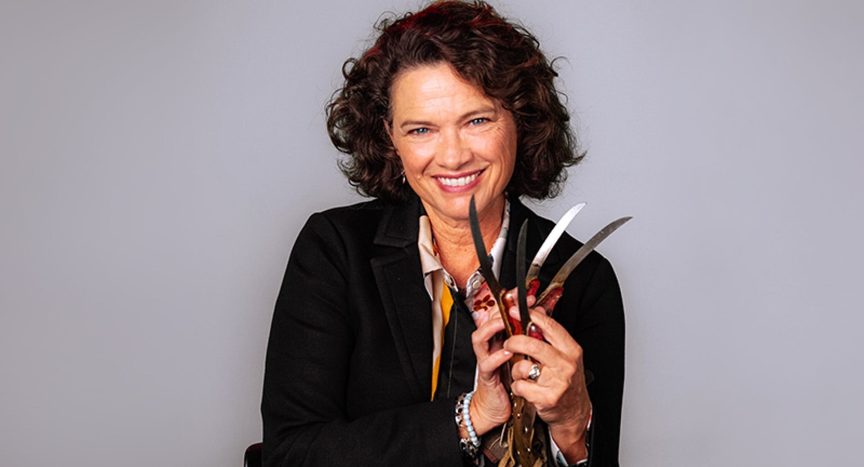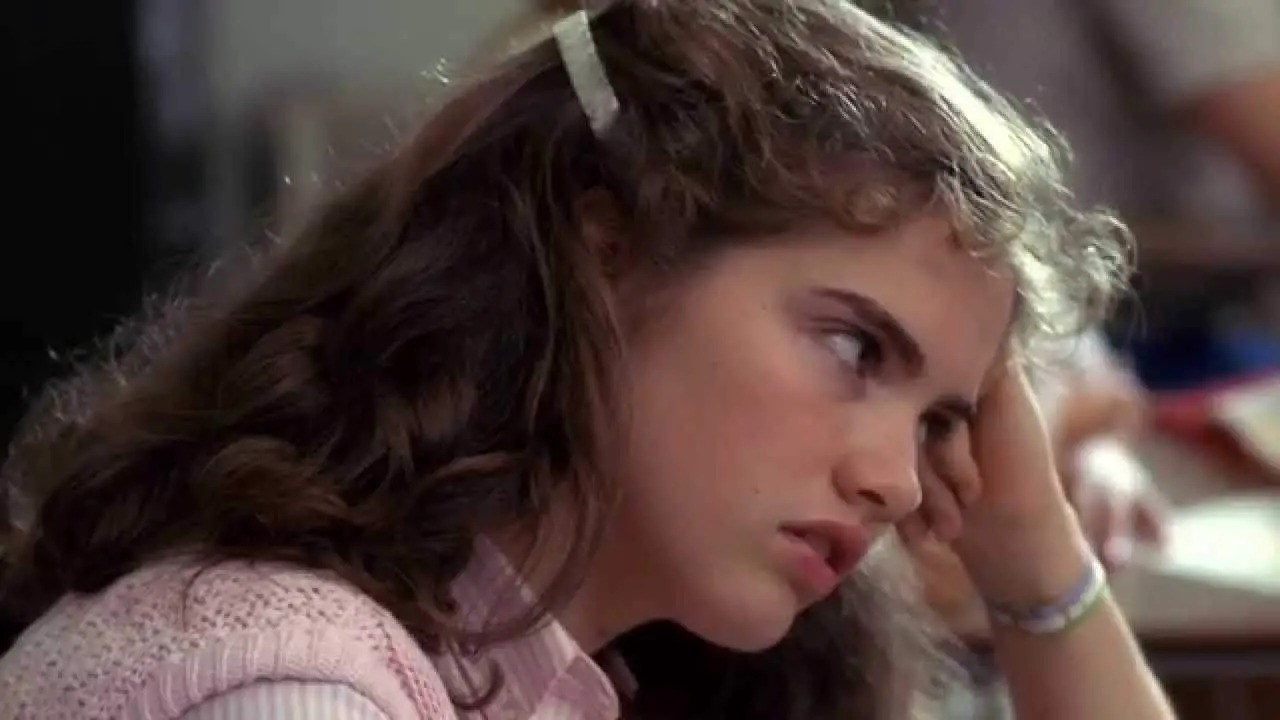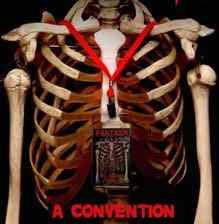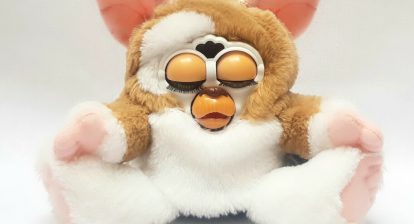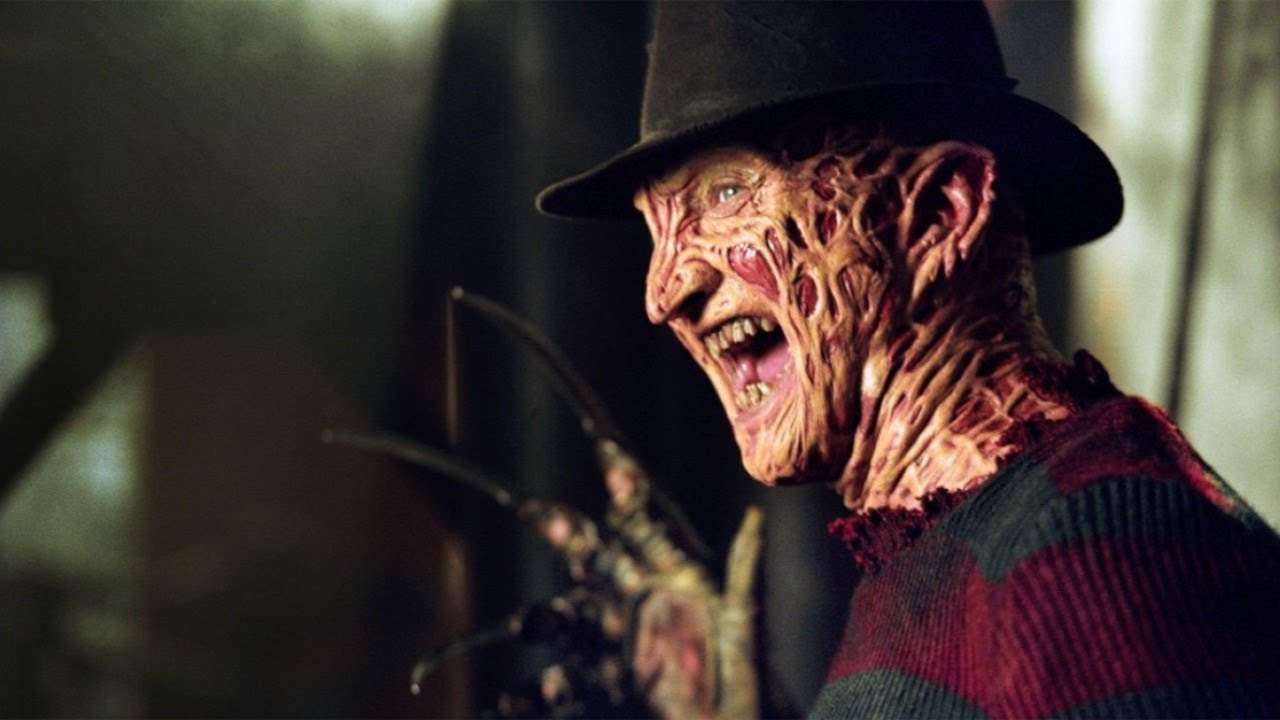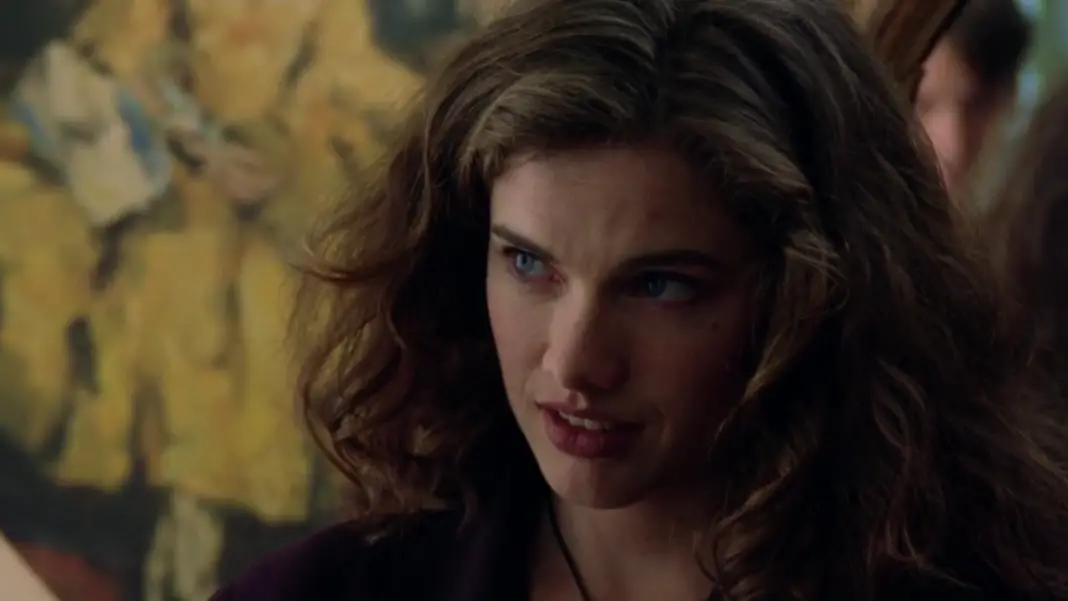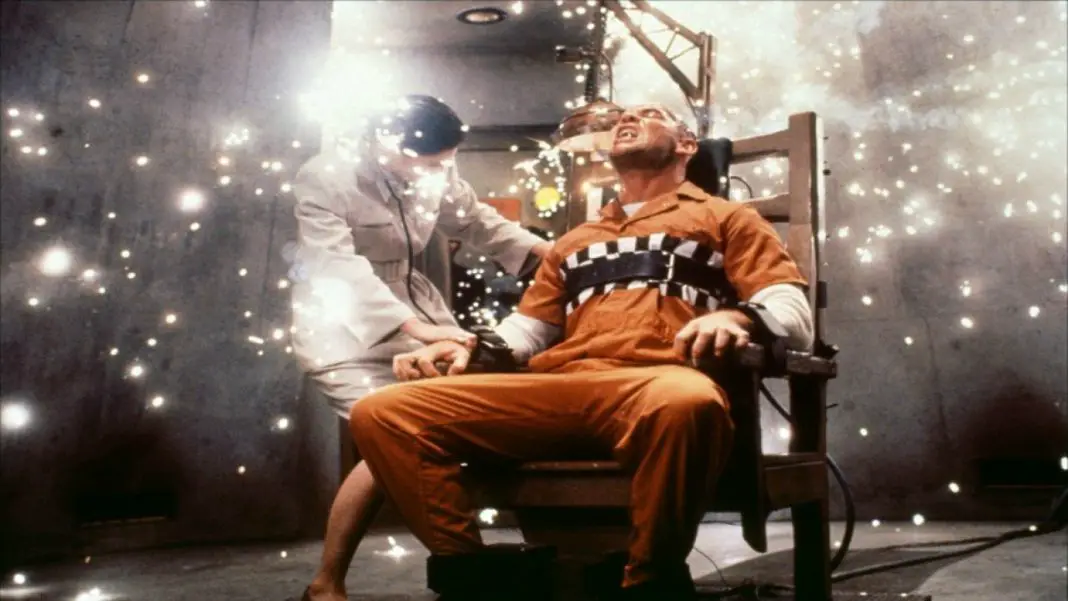Heather Langenkamp has battled her share of nightmarish creatures. Now, she makes them.
After starring as Nancy Thompson in Wes Craven’s A Nightmare on Elm Street series, the actress now operates AFX Studio with her husband, David Anderson. The California-based make-up effects studio has designed and manufactured award-winning make-up and creature effects for films and TV shows like American Horror Story and The Cabin in the Woods.
From a horde of zombies to a twisted clown, the artists at AFX have created their fair share of gore, ghouls, and goblins. But despite being active on the production side of entertainment, Langenkamp hasn’t left acting behind. In fact, she’s eager to jump back into portraying meaty characters like her role as the mysterious Dr. Stanton in Netflix’s The Midnight Club.
I sat down to talk with Langenkamp about how she got involved with special effects, the 40-year legacy of A Nightmare on Elm Street, how she feels about the title of Scream Queen, working with directors Wes Craven and Mike Flanagan, and more.
Wicked Horror: You run AFX Studio with your husband David. How has your role in the company changed from your early days with it to now?
Heather Langenkamp: My involvement started back in 2000 when my career as an actor had kind of stalled. I had been in Wes Craven’s New Nightmare, but after that nothing really happened. Like, I thought for sure I’d be getting opportunities to play more parts, but it was just a struggle.
My husband had a chance to go to Canada with Dawn of the Dead. [David said] there is a role for you in the company if you want to help manage the budgets and help me hire all this personnel and keep track of the budgets. That’s basically the biggest job when you’re running a show. You can’t let your budget just go crazy. So it really requires someone on a daily basis. I love that kind of work. My brain loves to solve puzzles. I actually like Excel spreadsheets. So, we got up to Canada and I took on a role as kind of an office coordinator, manager of budgets. It worked out really well. We had a really fun time doing it on location.
Over twenty-four years since then, Dave basically takes on the project. He figures out if he can help these producers with their needs—making monsters, making blood, making gore. And then once we get the job, then I kind of take over and try to figure out how we’re going to make it on the budget we’ve been given. It’s very challenging work. Many people would say that I’m stuck in an office a lot, but you are working with really creative people. The artists are so fun to be around. These are sculptures and painters and hair-layers and feather experts, and you just can’t believe how specific some of these artists are in their expertise. They’re so talented and a joy to be around, so that’s what’s kept me doing it—just being around all these fun people.
Once I became an empty-nester—about ten years ago—I said to myself, “I really want to be an actor again.” We had an eight- or nine-year challenge with our son having brain cancer, so at that point, we really enjoyed the fact that we could stay in Los Angeles. We worked on five or six seasons of American Horror Story, and that show allowed us to be here in LA. Our son even worked for us here at the shop as one of our lab techs. It was ideal. Once we moved through that, I had to really think about what I wanted to do with the rest of my life. I considered myself still young. I felt young, but then [I said], “You have gray hair, Heather! You have wrinkles! What are you gonna do?” So I realized it was the perfect opportunity to reinvent myself as a mature woman, no longer Nancy Thompson the sixteen-year-old or thirty-year-old like you see in Wes Craven’s New Nightmare, but a new woman who had been through a lot. I’ve had children, I have a grandchild now, so I thought now was a really perfect opportunity to present a new Heather Langenkamp to Hollywood. Mike Flanagan definitely helped by really kick-starting this next phase of my career by hiring me in Midnight Club.
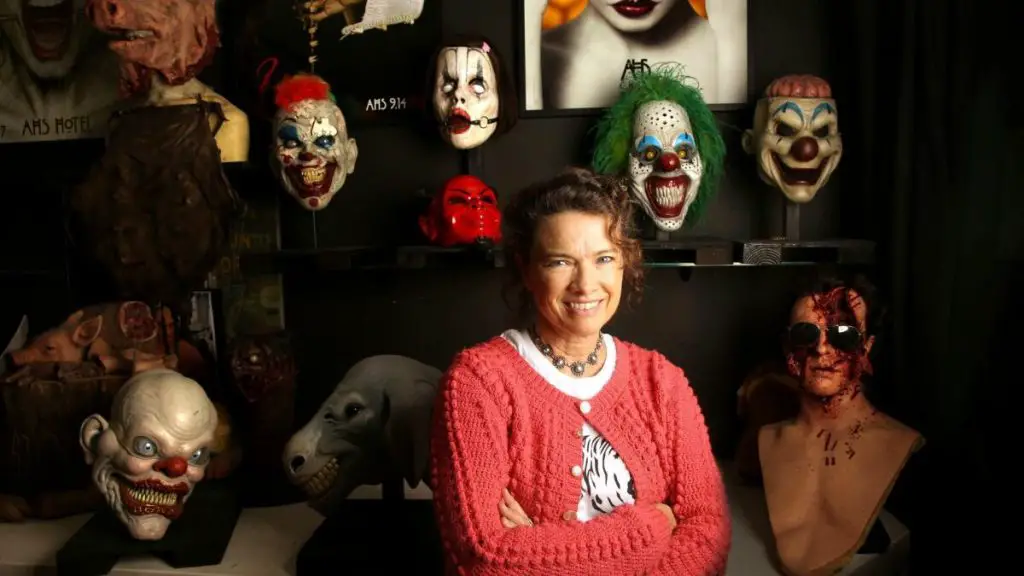
WH: You’re hitting on all the things I want to talk about. I’m so excited.
Heather Langenkamp: [laughs] In general, I’m not one of these people that says, “Just ask the universe for what you want.” I don’t 100% believe that it’s just that easy. But the case with Mike, I’ve been very purposeful about just always saying to myself, “I’m going to have a successful career as an actor as I get older. I would love to see myself working until I’m ninety years old.” You know, all these kinds of affirmations that put in your head your intention with your life. Once I started doing that on a regular basis, I got this call from Mike Flanagan literally out of the blue. Frankly, I had never really watched a lot of his stuff. I mean, I wasn’t that familiar with him. I think I’d watched The Haunting of Hill House, and I’d seen Oculus, but I didn’t know his repertoire. Then I got this part [of Dr. Stanton] and I am just so grateful to him and Trevor Macy, who was the producer, for including me because the part was perfect for me.
Once I got up to Canada, I told Mike, “You know, I’ve gone through this journey of cancer with your child.” He was like, “What?” And I said, “You didn’t know that I’d just done this for the last seven years?” My son had GBM and, of course, one of the main characters also has GBM on the show. [Mike] really had no idea, and so it really felt universally strange and magical at the same time that I got to work with this person who was writing such a sensitive and beautiful show about kids with cancer, but also figuring out how to have all these crazy twists and turns that the Midnight Club novels presented to them.
WH: Yeah, I was gonna mention Midnight Club because Dr. Stanton—and your portrayal of her—was my favorite part of that series.
Heather Langenkamp: You’re so nice. Oh, I’m so glad to hear you say that.
WH: I was sad when it was canceled because her cliffhangers were the ones I was most excited to see in a potential season two. Her character was so great. You did a great job.
Heather Langenkamp: You and I are the same on that point. I know that Mike would’ve made a second season that would’ve just knocked everyone’s socks off. But that’s just the way this business is. I ended up not being able to fulfill my dreams with Dr. Stanton but he was very kind. He put me in his new film, The Life of Chuck, so I got to work with him again, and I felt so happy to be part of this family because he really does make everybody feel that way, like they have this familial reputation. They’re all kind of a unit.
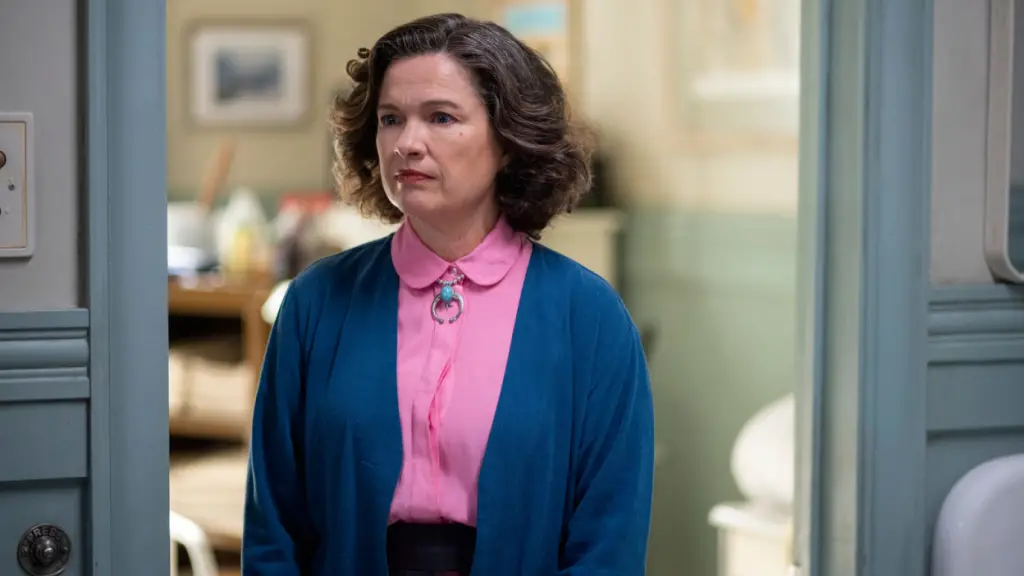
WH: I was gonna mention The Life of Chuck because I read the story when it came out in King’s collection, and as I was reading, I remember thinking that a film adaptation would be really tricky. I’m wondering what your experience was with the material and on set, and are you able to share who you’re playing in the film?
Heather Langenkamp: Yeah, I’m not able to tell you who I play, but I can tell you the story is so challenging to tell. The minute I read the script, I knew that Mike had done the perfect job bringing it to life. It’s magical and mysterious and very metaphysical and has a universal message for all of us. I don’t think if you’re going to the movie to see a slasher or horror movie, I don’t know if it’s going to fit any of those categories. It’s profound, actually. Every time I see [Mike], I admire what he’s done with that particular story because all of us wonder about our death. I think this movie really discusses what that means to understand your life from a point of view of: we all eventually die. It’s not gonna be a comedy, but there’s so many funny moments. It’s not gonna be a horror movie, but there’s all these really strange, twisted plotlines that Mike Flanagan does. They’re all in there, but they’re in a story that is so much bigger than your typical horror movie plotline or even your typical thriller plotline.
WH: Speaking of horror, a little film called A Nightmare on Elm Street turns 40 this year, and Halloween recently had it’s 40th anniversary, so I was wondering what you think it is about these little horror films that could that have such staying power and resonant with audiences after four decades. You’re a big part of that history.
Heather Langenkamp: You know, I wish I could figure it out because then I would try to exploit that knowledge and do another one. [laughs] People keep trying all the time. I mean, I think they are kind of innocent. Both of the movies—even though they have these really evil killers in them—on their surface, they’re very innocent and mundane locales with really average kids and teenagers. We all can just immediately identify with the people that are in these movies. And, you know, these tropes of the slut, the smart girl…all of that…people enjoy analyzing that kind of thing and talking about it. But the truth to me is that it presented America and life in suburbia in a way that pretty much everybody can feel like they are Nancy Thompson or they are Laurie Strode.
I always tell people it’s more that there are these teenagers living this reality, and then that reality is invaded by somebody that’s come from outside that no one’s expecting, and it’s up to these teenagers to deal with it. Like, it’s suddenly their problem, and how they deal with it is what people enjoy watching. They love watching how Nancy makes her booby traps. They love watching how she decides to go to sleep on purpose so she can meet [Freddy Krueger] in her dreams. All these things are so mundane and so we kind of get lulled into this comfortable feeling about these worlds, but then what happens is so absolutely terrifying and frightening because those directors…they loved making really terrifying horror. So, you match those two things together and it’s a recipe for success.
WH: Along with Jamie Lee Curtis, I would argue that you are one of the original Scream Queens of the ’70s and ’80s. How do you feel about that title? How do you think ten-year-old Heather would react if you told her that one day she’d grow up to be a scream queen and horror icon?
Heather Langenkamp: That’s such a really good question. Well, when I talked to Wes Craven about who was Nancy and what does Nancy represent, he was very clear that all the teenagers in A Nightmare on Elm Street are all just one teenager. But they’re broken up into four characters because it’s all the four different aspects of ourselves that work against us as we’re trying to face something really scary in our lives. The need for us to divert our attention with sex or food or electronics or screen time, whatever that is that diverts our attention is actually working against us as we try to get through our own realities and face the scary things that are in all of our lives. When he told me that, it really occurred to me that he’s so right in that you can kind of see yourself in all of the characters so well. He just wrote the characters so realistically that I don’t know if the “Final Girl” and the “Scream Queen” [label] has much meaning to me anymore. I look on it in a much broader sense.
Whether I had a boy child or a girl child, I would expect them all to act like Nancy. I would hope that they would all act like Nancy or be as courageous as Laurie Strode. And that’s why I just hope by using the term “Final Girl”, that it doesn’t seem to be descriptive enough. I think it needed to be a little more global about the spirit of youth and how, as the youth are trying to forge their way in a world their grownup parents have all f**ked up, how are they gonna move forward? How are they gonna get through knowing that the parents have just destroyed all their peace and comfort and reality that they should have been able to enjoy?
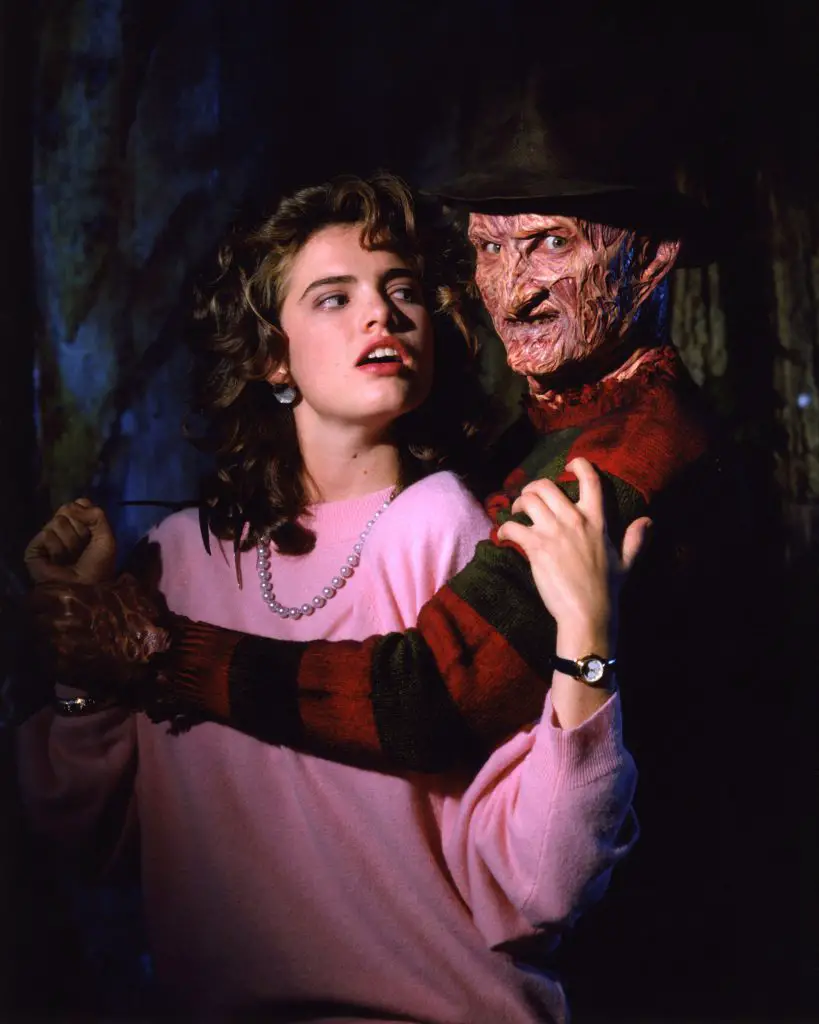
WH: I think that goes back to the writing, too, because when you were talking about some of Nancy’s actions in the film, she’s very much an active character who takes charge of her own destiny.
Heather Langenkamp: Right. She goes for it. It was unique. Wes Craven wanted to create a character that was not falling down and being weak and being at the mercy [of others] without taking her action. And I think a lot of it had to do with the fact that we were smack dab in the middle of the Women’s Liberation movement. He had a daughter who was at that very impressionable age where you have to give them a lot of positive messages about their identity to make them grow up strong.
WH: Going back to AFX and the designs you’ve done for American Horror Story like Twisty and the twins, I was wondering if there were any that you’ve worked on that have particularly freaked you out because they’re so realistic?
Heather Langenkamp: That’s such a great question. Twisty the Clown was the first character I had ever worked on with my husband. We’d worked on lots of zombies. We’d worked on Zack Synder’s Dawn of the Dead, so we made hundreds of zombies. So, we were kind of done with zombies. And then, on Cabin in the Woods, we made a lot of characters that called back monster movies of the twentieth century—Pinhead, and all of the things that we loved growing up in the ’70s and ’80s.
Nothing was too scary there, but once we got to American Horror Story, there was an attitude about the horror in that show that was just purely scary. I think that’s why people really responded to it. But I think the thing that got to me the most was the little woman—Ma Petite. We actually did a double of her body and her character because she was going to be put under glass in [a] specimen lab.
I’d have to say that Hotel, actually, had way more disturbing horror in it for me. We made the Addiction Demon who comes out of the bed as kind of a representation of this monster that’s out to take over every part of you as a metaphor for addiction. That one was really scary to me. And then some of the other gags in that [show] were pretty disgusting. [laughs]
WH: I think that’s a testament to the effects you guys worked on where it has such a visceral reaction for the audience member.
Heather Langenkamp: Yeah! I mean, in Roanoke, I’ll never forget, we did a gag where one of the male characters has his entrails pulled out of his abdomen. While we’re making that, we’re just laughing. And yet, when you finally see it on screen, you’re just like, “Oh my gosh, that is so horrifying.” We really enjoyed working on that show. We had such a great crew.
WH: You can tell that from season to season, the tone and the effects are very similar in setting up that joint world, so that’s really nice that it’s the same company, for the most part.
Heather Langenkamp: Now Vincent Van Dyke does the show since the middle of 1984. We kind of politely bowed out. I think my husband, David Anderson, just thought it was time to go in a new direction. Maybe do less horror. I mean, he really loves doing character make-ups.
Did You Know? Wicked Horror TV Has Classic and Independent Horror Films Available to Stream for Free!
WH: You’ve worked in AFX, you’ve had a lot of success in horror films—and now The Midnight Club and The Life of Chuck—so what would be the next big goal for you, either acting or effects-wise, that would make you really happy?
Heather Langenkamp: Well, I’ve been really focusing on restarting my acting career. Since 2018, I’ve been solely focused on kind of revising it from the grave, basically. [laughs] I mean, there was really nothing going on until Mike Flanagan picked me up and dusted me off and got me in one of his shows. I mean, I really didn’t have much to show. I had some small independent films that I had done over the years, but nothing that anybody would have seen. Most of them were very small films. So, this really gave me an opportunity with some material now, new representation, and getting a publicist. It’s all part of what you have to do to just get your name out there again, just like every other actor out there who wants a job. So, believe it or not, I feel like I’m starting at square one. I mean, I know people just don’t believe me, but there’s aspects to this actor’s life that I find challenging because you think like after having this long of a career and having one part that I was so well-known for, that I would have easier entrée into being considered for parts that I really want. I’m still auditioning for roles and I am working really hard to get another show like The Midnight Club.
I did a film called Little Bites with Spider One and Krsy Fox last year that’s gonna premiere at Fantastic Fest this year, and it’s an allegory for motherhood. I immediately loved the script. Cher and Chaz Bono produced it, so it was really exciting to be on a project like that. And I have one really great scene in it. Hopefully, in Life of Chuck, I hope I’m not cut out of it. And these things will accumulate and then I’ll get my momentum and hopefully the ball will start rolling downhill.
WH: Congratulations on all the good stuff you’ve got coming up with Life of Chuck and AFX. Nightmare turns 40 this year, so I’m sure you’ll be hitting the convention circuit.
Heather Langenkamp: Yes, I can be found on any given weekend in a medium-to-large American city.
WH: In a ballroom!
Heather Langenkamp: Yeah, somewhere like Houston or Buffalo or Raleigh. What I’m getting to do is to go to a lot of cities in America that I’ve never visited. I’m always excited to do it. And, of course, I personally believe I have the best fans in the whole world. They’ve lifted me up in the hardest days of my life, and they’ve also made this life for me possible, so I always at the end of every interview just want to say I thank everyone—like you. It really means a lot.
[This interview has been edited for length, content, and clarity]
